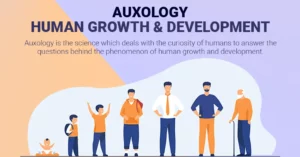AI Answer Evaluation Platform Live Now. Try Free Answer Evaluation Now
Holism
Holism, derived from the Greek word ‘holos‘ meaning ‘whole‘ or ‘all‘, is a philosophical approach suggesting that the system as a whole should be the primary focus of study, rather than its individual components [1]. It asserts that all the components of any given system are interconnected and can only be fully understood in the context of that complete system.

In the realm of anthropology, holism refers to the commitment of anthropologists to consider the complete context of a society when conducting their research. This involves studying the myriad aspects of human life — cultural, biological, historical, and linguistic — and their interconnectedness to gain a comprehensive understanding of human behavior and society.
Importance of Holism in Anthropology
The holistic perspective is central to anthropology and sets it apart from other social sciences. Anthropologists aim to understand the full sweep and complexity of cultures across all of human history. Holism allows anthropologists to investigate how different aspects of a society — from its environment, technology, economy, to its belief systems, family structure, and artistic expressions — interact and influence each other. This interconnected view can offer invaluable insights into human behavior, cultural dynamics, social organization, and evolutionary patterns.
Furthermore, holism encourages anthropologists to study not just the observable, material aspects of human societies, but also the intangible dimensions, such as social norms, values, symbols, and ideologies. This underscores the importance of interpretive understanding in anthropological inquiry, helping scholars to comprehend the ‘insider’s viewpoint’ and to make sense of human behavior in its wider socio-cultural and historical contexts [2].
Anthropology’s holistic approach also plays a critical role in cross-cultural comparison and relativistic perspective, helping to shed light on the cultural diversity that characterizes human societies. It facilitates a more empathetic and less ethnocentric understanding of the myriad ways in which human societies have adapted to their specific circumstances and how they give meaning to their lives.
Application of Holism in Cultural Anthropology
- Holism is an essential perspective in cultural anthropology.
- Cultural anthropologists aim to understand the complex web of meanings, behaviors, and artifacts that characterize a society.
- The holistic perspective facilitates the study of religion, economics, social structure, politics, art, and other cultural aspects as interconnected parts of a society rather than as isolated phenomena.
- This approach provides a deeper and more nuanced understanding of cultural phenomena and their significance in society.
Holism in Biological Anthropology
- Holism also finds application in biological anthropology, a subfield that examines the biological and biocultural aspects of the human species.
- This discipline integrates the study of human genetics, primatology, human adaptation, and paleoanthropology.
- A holistic perspective allows biological anthropologists to connect individual biological phenomena to larger socio-cultural and environmental contexts.
- For instance, understanding human health and disease is not merely a matter of understanding human biology but also the socio-cultural and ecological contexts in which individuals live.
Linguistic Anthropology through a Holistic Lens
- In linguistic anthropology, holism enables researchers to view language as a complex system intricately connected to culture, cognition, and society.
- Languages are not just systems of communication; they also serve as a means of conveying and constructing cultural meaning.
- Linguistic anthropologists using a holistic approach study not only the structural aspects of language but also how language shapes and is shaped by cultural practices, social relationships, and power dynamics.
Archaeological Perspectives: Holism in Time and Space
- Holism in archaeology is manifested through the interpretation of material remains in their broader environmental and cultural contexts.
- Do not study artifacts in isolation; instead, they interpret these items within the context of the site, the culture, and the time period.
- This allows them to reconstruct past life ways, social organization, and cultural change over time.
- The holistic approach is integral to the archaeological understanding of cultural processes, such as technology development, trade, social stratification, and cultural evolution.
Methodological Approaches to Holism
- Participant Observation and Holistic Understanding: Participant observation, a fundamental method in anthropological research, exemplifies the holistic approach. Through participation in the daily life of the study population, anthropologists can develop an in-depth understanding of cultural practices, social interactions, and the meanings people assign to their experiences. This immersion enables researchers to understand the interconnectedness of various cultural elements and provides a comprehensive view of the society being studied.
- Comparative Methods and Holistic Analysis: Comparative methods also play a crucial role in holistic anthropology. These methods involve comparing and contrasting different cultural systems to understand universal patterns or particularistic variations among human societies. Comparative study helps anthropologists to identify similarities and differences, to derive patterns, and to construct models and theories about human culture and society [3]. This approach complements holism as it aids in understanding a particular culture or society in relation to others, further enriching the overall understanding of human diversity and interconnectedness.
- The Role of Ethnography in Holistic Anthropology: Ethnography is the descriptive study of a particular human society or the process of making such a study. It is often employed to investigate cultural phenomena reflecting the knowledge and system of meanings guiding the life of a cultural group. Ethnography, as a methodology, aligns with holism as it seeks to understand the complexity of cultural systems and the interrelationships among its parts. By producing rich, detailed descriptions of everyday life, ethnographers can illuminate the ways in which different elements of a society — such as economics, religion, kinship, politics, and art — interact and contribute to the overall functioning of the society.
The Interconnectedness of Cultures and Societies
Globalization, marked by the increased interconnectedness of countries and cultures, poses both opportunities and challenges for holistic anthropology. Rapid technological advancements, the spread of English as a global lingua franca, and the increasing intermingling of cultures lead to a complex web of global interdependencies [4]. Understanding these dynamics necessitates a holistic approach, considering multiple facets of culture, society, and biology as interconnected rather than isolated.
These interdependencies manifest in various ways, from cultural borrowing and blending to shifts in social structures and power relations, even affecting aspects of human biology, such as health and disease patterns [5]. By adopting a holistic perspective, anthropologists can elucidate the complexities of global cultural and biological exchanges and their impacts on societies.
Anthropology of Globalization: A Holistic View
The anthropology of globalization focuses on understanding the cultural, biological, and social impacts of an increasingly interconnected world. Here, the holistic approach is key to deciphering how global influences shape and are shaped by local contexts. For instance, the consumption of globally mass-produced foods and adoption of sedentary lifestyles have profound impacts on local dietary practices and health outcomes, reflecting how the global and the local intersect [6].
Furthermore, holistic anthropology assists in understanding global migration patterns. It allows for a comprehensive exploration of the reasons behind migration, the experiences of migrants, and the consequent changes in both host and source societies, considering economic, social, political, and cultural dimensions.
In summary, a holistic approach, recognizing the interconnectedness of different aspects of human life, is vital in understanding the multifaceted phenomena related to globalization.
Emerging Trends and Theories
As we move further into the 21st century, the field of anthropology continues to evolve and adapt. Emerging trends and theories reflect a reaffirmation of the discipline’s holistic underpinnings, combined with an increased focus on interdisciplinary collaboration and increased engagement with contemporary global issues.
There’s a growing recognition of the necessity to integrate perspectives from biological, cultural, linguistic, and archaeological anthropology, thus making our understanding of humanity more comprehensive. For instance, the field of bio-cultural anthropology has gained traction, recognizing the deep interconnectedness of culture and biology in shaping human health, behavior, and evolution.
Moreover, the increased focus on contemporary global issues like climate change, public health, migration, and inequality, necessitates a holistic understanding of the complex cultural, biological, social, and historical factors that contribute to these issues.
The Impact of Technology on Holistic Studies
Technology plays a significant role in shaping the future of holistic anthropology. Digital technologies and the internet open new research fields such as digital anthropology and cyberanthropology, exploring how digital culture shapes and is shaped by social, cultural, and biological factors.
Furthermore, technological advancements in archaeological and biological methods, like remote sensing or genomics, allow for a more nuanced understanding of the past and human evolution. However, as with all methodologies, it’s crucial that these tools are used within a holistic framework, recognizing the complex interplay of culture, biology, history, and language in shaping human societies.
These developments suggest a vibrant future for holistic anthropology, shaped by evolving theories, innovative methodologies, and contemporary global challenges.
Final Thoughts on Future Research Directions
Holistic anthropology is positioned to make significant strides in the years to come. Future research directions might include:
- Interdisciplinary collaboration: Holistic anthropology’s intrinsic interdisciplinarity lends itself to collaborations with fields like psychology, sociology, ecology, and computer science. These alliances can provide a multifaceted perspective to tackle complex problems, enhancing the holistic approach’s richness.
- Applied Anthropology: The relevance of holistic anthropology in addressing contemporary issues is unquestionable. Its role in public health, education, business, and environmental conservation could be further emphasized, encouraging more anthropologists to engage in solution-oriented research.
- Digital and Bio-cultural Anthropology: The burgeoning fields of digital anthropology and bio-cultural anthropology present exciting opportunities. Future research can focus on these areas, exploring how digital technologies shape human societies and how biological and cultural factors interact to influence human behavior, health, and evolution.
- Global Challenges: Issues like climate change, migration, and inequality necessitate a comprehensive understanding of the cultural, biological, social, and historical factors involved. Future research should continue to employ holistic anthropology’s broad perspective to contribute to these global dialogues.
References
[1] Levin, S. (1992). The problem of pattern and scale in ecology: The Robert H. MacArthur Award Lecture. Ecology, 73(6), 1943-1967. https://doi.org/10.2307/1941447
[2] Geertz, C. (1973). The interpretation of cultures: Selected essays. Basic Books.
[3] Ember, C. R., & Ember, M. (2001). Cross-cultural research methods. AltaMira Press.
[4] Tomlinson, J. (1999). Globalization and culture. University of Chicago Press.
[5] Nugent, D. (2018). The encyclopedia of globalization and human migration. ABC-CLIO.
[6] Mintz, S. W., & Du Bois, C. M. (2002). The anthropology of food and eating. Annual Review of Anthropology, 31, 99-119.




